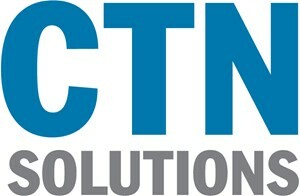In an increasingly digital world, the importance of cybersecurity resilience has never been more evident. As technology evolves, so do the threats that target our digital assets. In 2023, the cybersecurity landscape continues to shift, presenting both challenges and opportunities. Managed Service Providers (MSPs) are at the forefront of this evolution, playing a pivotal role in helping organizations build and maintain robust cybersecurity strategies. In this blog post, we’ll delve into the current state of cybersecurity resilience and explore the exciting opportunities that await MSPs in this dynamic field.
The Changing Face of Cybersecurity Resilience: In recent years, cyberattacks have grown not only in frequency but also in sophistication. Threat actors are leveraging advanced techniques, including AI-powered attacks, supply chain vulnerabilities, and zero-day exploits, to breach organizations’ defenses. This evolving threat landscape has elevated the importance of cybersecurity resilience – the ability to detect, respond to, and recover from cyber incidents swiftly and effectively.
MSPs: Guardians of Cybersecurity Resilience: Managed Service Providers have emerged as key players in the fight against cyber threats. Organizations are increasingly turning to MSPs to bolster their cybersecurity defenses due to the expertise, resources, and specialized tools they offer. MSPs can provide a range of services, including real-time threat monitoring, incident response planning, and security awareness training, enabling businesses to maintain a strong cybersecurity posture.
Opportunities on the Horizon for MSPs:
- Tailored Solutions: As cyber threats become more diverse, MSPs have the opportunity to develop customized cybersecurity solutions that cater to each client’s specific needs. This might involve creating bespoke incident response plans, implementing multi-layered defense strategies, and leveraging threat intelligence to stay ahead of emerging risks.
- Emerging Technologies: The integration of emerging technologies like Artificial Intelligence, Machine Learning, and Automation presents exciting opportunities for MSPs. These technologies can enhance threat detection, automate routine security tasks, and enable proactive threat hunting, allowing MSPs to offer cutting-edge solutions to their clients.
- Regulatory Compliance: With the proliferation of data protection regulations worldwide, organizations face increasing pressure to ensure compliance. MSPs can assist clients in navigating complex regulatory landscapes by implementing security measures that align with industry standards and compliance requirements.
- Collaborative Partnerships: Collaborating with other MSPs, security vendors, and industry experts can enable MSPs to pool resources, share threat intelligence, and develop comprehensive security solutions that leave no vulnerabilities unaddressed.
- Security Awareness Training: Human error remains a significant factor in cyber incidents. MSPs can offer comprehensive security awareness training programs to educate employees about the latest threats, phishing scams, and best practices for maintaining a secure digital environment.
In the ever-evolving realm of cybersecurity resilience, Managed Service Providers are poised to play a pivotal role in safeguarding organizations from an array of cyber threats. As the threat landscape continues to evolve, MSPs have the opportunity to innovate, collaborate, and tailor their offerings to meet the unique needs of their clients. By embracing emerging technologies, fostering partnerships, and prioritizing proactive defense strategies, MSPs can position themselves as trusted advisors, ensuring their clients are well-equipped to navigate the complexities of today’s cybersecurity challenges. The future of cybersecurity resilience is promising, and MSPs are at the forefront, leading the charge towards a safer digital world.
